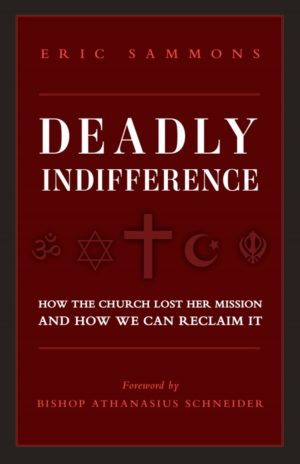Catholics Answers just announced the release of the “Father Justin” interactive AI app, which will “provide users with faithful and educational answers to questions about Catholicism.”
I have to admit, I have a lot of conflicting thoughts on this.
As a former tech geek, I still get excited by advances in technology. On just that basis, it’s amazing what these apps can do. I took “Father Justin” on a test drive, and “he” did a good job of answering even difficult questions. I asked about abortion, homosexuality, the traditional Latin Mass, the legitimacy of Pope Francis, and many other topics. Every time “Father Justin” gave a solid, faithfully-Catholic answer (he almost even sounds like Jimmy Akin at times). There’s no comparison between this AI and something like ChatGPT when it comes to receiving truly Catholic answers.
I’m also a fan of Catholic Answers, so I’d rather see them develop something like this than, for example, the National Catholic Reporter or Catholics for Choice. Interactive AI apps are the rage right now, so having a solid Catholic organization dipping its toe into that space is probably needed.
But…(you knew there would be a “but,” didn’t you?)
I can’t help feeling some trepidation about this foray into artificial intelligence. As I noted above I’m a former tech geek, and there’s a reason for the “former” part. I’ve become more wary over the years of the negative impact of modern technology on our lives, so I don’t embrace every new “advance” as an unqualified good, or even as something morally neutral. Modern technology impacts us in ways we don’t fully understand, and in ways, I would say, that make us less human. There’s real concerns with AI beyond sensational claims of robot overlords, and I fear that the blurring of AI with “real life” could have long-term negative consequences on society.
Further, and I’m sure Catholic Answers would agree, apologetics is much more than just answering questions correctly. There’s always a relational element to both evangelization and apologetics. For example, someone is going to hear an apologetic answer differently from a close friend than from someone they don’t like, or from a stranger. Who knows how they will receive it from a computer pretending to be a priest? Human society is made to be modeled after the Trinity, which is an eternal relationship of Three Persons, and AI in many ways breaks that model. I understand that the Internet already started this process, but that doesn’t mean every step in that direction must be taken.
Another concern with the “Father Justin” app is the decision to make the AI character a priest. Not only is “Father Justin” dressed as a priest, but in one answer “he” gave me, “he” actually started his answer with, “As a Catholic priest…” I understand this was done to give “him” a certain air of authority; as Catholic Answers said, “We wanted to convey the spirit and nature of the responses users can expect—authoritative yet approachable.”
But there’s a reason impersonating a priest is a serious canonical crime: a priest is sacramentally “another Christ” and gets his authority not from knowing the most Catholic theology, but from his ordination. Having a lay person as the AI character would definitely make it seem less authoritative and less distinctly Catholic to the average user, but I’m not sure making “him” a priest was for the best.
None of my concerns are meant to question the motivations of Catholic Answers, of course. I understand that the reality is that we live in a world where many people engage in question-and-answer exchanges with AI, so having a faithfully Catholic option is an understandable desire of many Catholics. Yet I can’t help but think that there’s deeper issues here, ones that threaten to undermine a Catholic incarnational understanding of the world, all while sincerely trying to advance Catholicism.
Call me an old fogey (I’ve been called worse), but at least for me I’ll continue to consult and recommend real people, not computer simulations of them, for better understanding the Catholic Faith.



